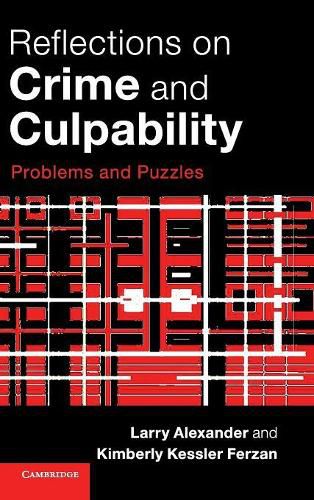Readings Newsletter
Become a Readings Member to make your shopping experience even easier.
Sign in or sign up for free!
You’re not far away from qualifying for FREE standard shipping within Australia
You’ve qualified for FREE standard shipping within Australia
The cart is loading…






In 2009, Larry Alexander and Kimberly Ferzan published Crime and Culpability: A Theory of Criminal Law. The book set out a theory that those who deserve punishment should receive punishment commensurate with, but no greater than, that which they deserve. Reflections on Crime and Culpability: Problems and Puzzles expands on their innovative ideas on the application of punishment in criminal law. Theorists working in criminal law theory presuppose or ignore puzzles that lurk beneath the surface. Now those who wish to examine these topics will have one monograph that combines the disparate puzzles in criminal law through a unified approach to culpability. Along with some suggestions as to how they might resolve the puzzles, Alexander and Ferzan lay out the arguments and analysis so future scholars can engage with questions about our understanding of culpability that very few have addressed.
$9.00 standard shipping within Australia
FREE standard shipping within Australia for orders over $100.00
Express & International shipping calculated at checkout
In 2009, Larry Alexander and Kimberly Ferzan published Crime and Culpability: A Theory of Criminal Law. The book set out a theory that those who deserve punishment should receive punishment commensurate with, but no greater than, that which they deserve. Reflections on Crime and Culpability: Problems and Puzzles expands on their innovative ideas on the application of punishment in criminal law. Theorists working in criminal law theory presuppose or ignore puzzles that lurk beneath the surface. Now those who wish to examine these topics will have one monograph that combines the disparate puzzles in criminal law through a unified approach to culpability. Along with some suggestions as to how they might resolve the puzzles, Alexander and Ferzan lay out the arguments and analysis so future scholars can engage with questions about our understanding of culpability that very few have addressed.